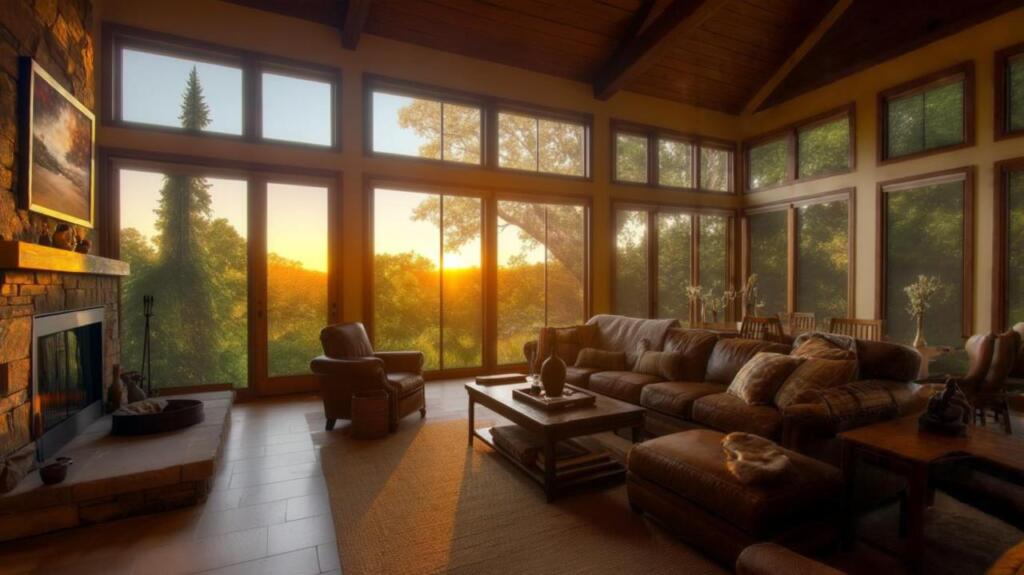August 6, 2025
Window Tinting – Installation & Maintenance FAQs
Window tinting is an increasingly popular upgrade for residential properties in New Zealand. Homeowners are discovering the practical and aesthetic benefits of adding a quality window film to their homes—improving privacy, reducing glare, enhancing energy efficiency, and extending the life of interior furnishings. If you’re considering window tinting , this comprehensive FAQ will answer the most common questions related to installation and maintenance.
What is window tinting and how does it work?
Window tinting involves applying a thin laminate film to the interior or exterior of glass windows. These films are designed to block UV rays, reduce heat, and provide varying levels of privacy or aesthetic enhancement. There are several types of window tints available, including solar control films, privacy films, security films, and decorative films. Each type has specific properties suited to different home environments. In regions like Taranaki, where sun exposure can be intense, solar window films help manage indoor temperatures and reduce fading of interior furnishings.
Is professional installation necessary, or can I DIY?
While DIY tinting kits are available, professional installation is strongly recommended, especially for homeowners in window tinting markets. Certified installers have the tools and experience to ensure a flawless, bubble-free finish. Improper application may lead to peeling, creasing, or reduced performance over time. Additionally, professionals can help homeowners choose the best type of film for their specific window orientation, size, and sun exposure. Hiring an expert also ensures the film is applied in compliance with New Zealand building and safety codes.
How long does the installation process take?
The duration of the installation depends on the number of windows, their size, and the type of tint being applied. On average, a standard home window tinting project can be completed within a day. For larger properties or specialised films, the job may take slightly longer. A trained installer typically begins by thoroughly cleaning the windows, cutting and shaping the film to fit precisely, and then applying the film using professional-grade tools to eliminate air bubbles and moisture between the glass and the film.
What kind of maintenance is required after window tinting?
Maintaining tinted windows is relatively straightforward. After installation, it’s essential to allow the film to cure—this can take up to 30 days, depending on the weather. During this period, avoid cleaning the windows or touching the film unnecessarily. Once cured, windows can be cleaned using a soft cloth and ammonia-free glass cleaner. Avoid abrasive tools such as scrub brushes or rough sponges, which could scratch or damage the film. Regular light cleaning will keep your windows looking sharp while preserving the tint’s clarity and performance.
Will the tint affect natural light inside my home?
One of the most common concerns homeowners have is whether window tinting will darken their interiors. Modern window films are designed to filter harmful UV rays and reduce glare without significantly compromising natural light. In fact, many films improve the quality of light indoors by diffusing harsh sunlight, reducing hotspots, and making living spaces more comfortable. Choosing the right film opacity and tint shade ensures you retain brightness while still enjoying the benefits of reduced glare and heat.
How durable is residential window tint?
High-quality window films are engineered to last for many years, even in the face of New Zealand’s varied weather conditions. Most residential window tints come with warranties ranging from 10 to 15 years, depending on the product and the installer. Films used in window tinting are often chosen for their ability to withstand UV exposure, salt air, and humidity, making them particularly resilient in coastal climates. Longevity is also influenced by how well the film is maintained, so proper care plays a key role.

Can window tinting help reduce energy bills?
Absolutely. Window tinting plays a significant role in improving a home’s energy efficiency. By reflecting a portion of the sun’s heat during summer and retaining indoor warmth in winter, tinted windows help reduce the workload on heating and cooling systems. This translates into lower energy bills and a more comfortable indoor environment. Homeowners who choose to tint west- and north-facing windows in particular often see noticeable savings and improved climate control throughout the year.
Is window tinting a good investment for property value?
Window tinting is a relatively low-cost home upgrade that offers a range of benefits—making it an attractive feature for prospective buyers. Improved energy efficiency, enhanced curb appeal, and greater indoor comfort all contribute to increased property value. In areas like New Plymouth, where sunlight and coastal exposure are key environmental factors, having professionally installed window film is often seen as a sign of a well-maintained and thoughtfully updated home.
Are there any legal restrictions or compliance requirements?
In New Zealand, most regulations surrounding window tinting pertain to vehicle glass. However, for residential applications, it’s still important to consider any potential restrictions in body corporate environments or buildings with heritage listing. Always consult with a local expert before installation to ensure your chosen film type meets local guidelines. Professional companies offering window tinting services are well-versed in relevant compliance standards and can guide you through any necessary approvals or documentation.
What should I look for in a window tinting service provider?
When selecting a window tinting provider, it’s essential to consider experience, customer reviews, warranty coverage, and the quality of film they use. Ask whether they are certified installers and whether their work comes with a satisfaction guarantee. A reliable local provider will offer a consultation, recommend the best film for your property, and ensure the installation is carried out to a high standard. For New Plymouth homeowners, working with a team familiar with the region’s climate and housing styles ensures better results and long-term satisfaction.
Whether you’re looking to increase privacy, protect furnishings, or simply make your home more energy efficient, window tinting is a smart, cost-effective solution. From installation to maintenance, each step of the process is designed to enhance the performance and comfort of your home. And with so many modern options available, it’s easier than ever to find a tint that fits your lifestyle and home design. If you’re considering the benefits of window tinting New Plymouth, trust in a local expert to help you make the best decision for your home and your future.
Let MODN Living guide you toward a clearer, cooler, and more comfortable home with trusted advice and professional insight on residential window tinting.



